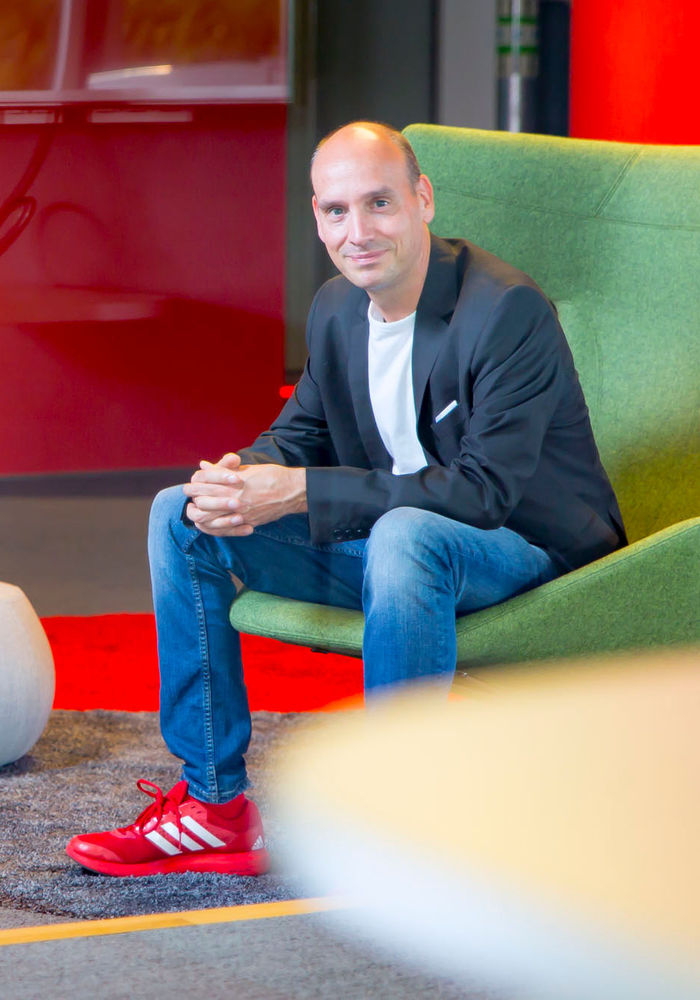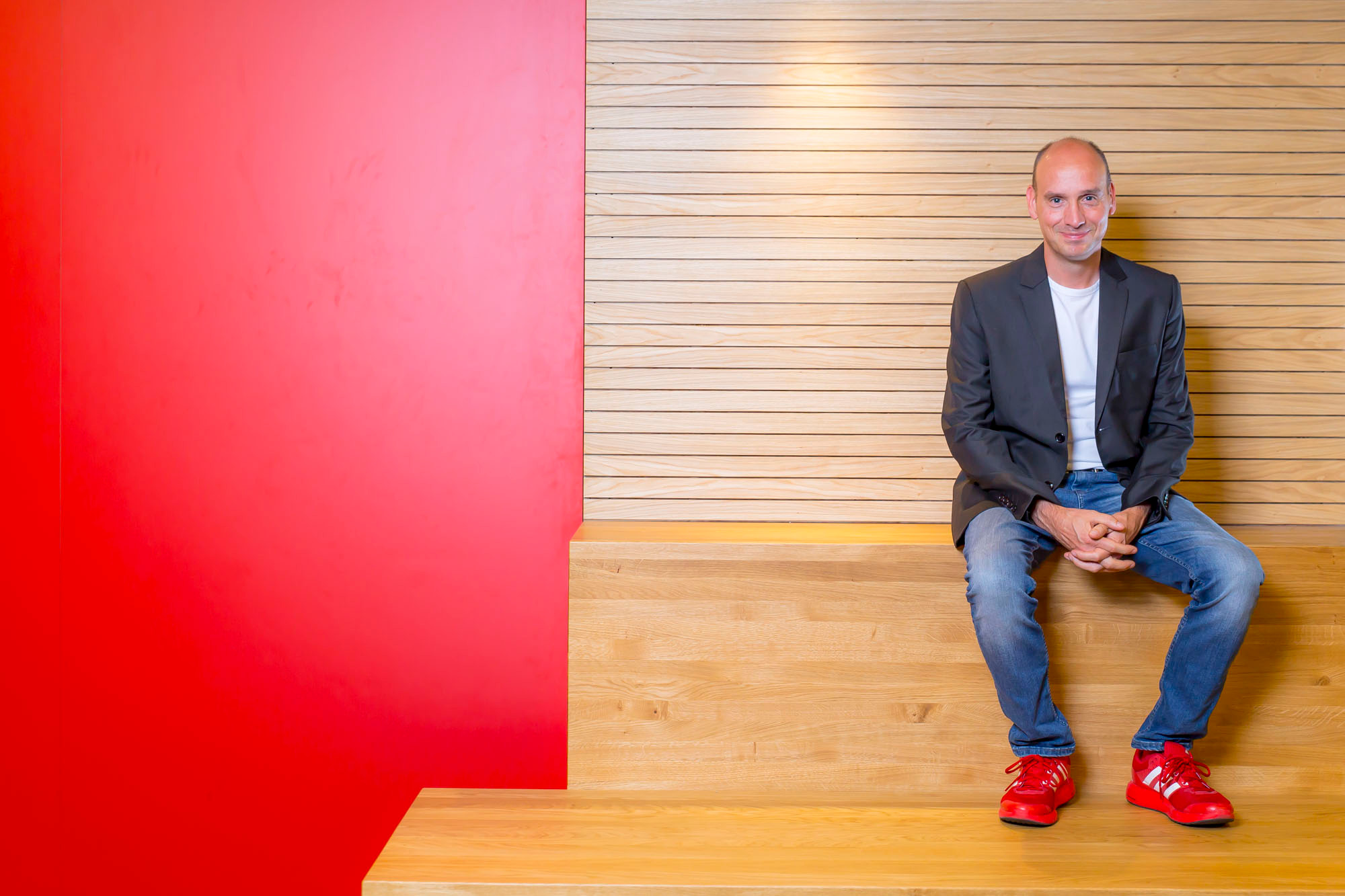Thomas Riedel, founder and CEO of wireless networking solutions giant Riedel, has spoken to Headliner about the company’s plans to change the concept of what is possible in the world of broadcast and how its ability to identify new trends has put it on course for a year of record-breaking growth.
Though already revered as a ground-breaking force across the industry, Riedel has spent the past 18 months honing and refining its technology and processes to offer ever-more innovative solutions during the biggest crisis the sector has ever seen. The company has invested time and resources into developing remote production capabilities that have changed the game since the onset of the pandemic. In some cases, Riedel’s latest breakthroughs have caused some partners to completely rethink their approach to production and comms operations, while its investment in R&D has led to a raft of new products and technologies coming to market that have set new standards, not least through its work on the America's Cup this year, where it helped the event achieve its most viewed outing to date.
Elsewhere, Riedel has added several new recruits to its ranks, particularly in R&D, utilising the lockdown period to introduce new technologies and improve existing ones.
Here, Thomas Riedel tells Headliner about the latest market trends, offers his take on the “conservative” broadcast market, and fills us in on what has been a truly pivotal time for the industry…
How has Riedel been faring during the pandemic? What impact has lockdown and social distancing had on the business?
There’s lots to tell, and it’s not just negatives, but also some positives. Obviously when the pandemic kicked in, it was a shock. At the time I was in Melbourne waiting for the first Formula 1, which was cancelled, so I just jumped on a plane home. Since then I haven’t done more than 10 flights, when usually I’d be flying two times a week, so it’s been a very different life, that’s for sure.
I thought straight away that it was going to be really bad for the whole world, but specifically for our business with so many events being cancelled or postponed. For us it wasn’t as bad as we expected in the early stages. We used the time to keep working on engineering, so 2020 wasn’t a hugely profitable year, but it wasn’t a huge loss either. The measures we implemented were exactly the right ones to make sure we got through this. We used the time to do all the things we usually want to do but don’t have time for, things like product development. And things like Formula 1 and football came back after only a short break.
Personally, the way we were all slowed down in our lives was a very positive thing. When I think of my schedule before the pandemic, I was sitting on a plane most of the time. Now I spend a lot more time at home with family, but also inside the company to discuss things. It feels much better.
What has the company been focusing on during this down time?
There are two main aspects. One is looking at the product business of Riedel. Most people know us as a specialist in intercoms and wireless systems. For several years now we have also been focusing on AV networks and that business grew to a certain size, so our strong belief is that these will merge into one another. In the future we believe it will not just be about buying an intercom system or an audio system, but it will be an all-in-one solution. We must think about how AV communications systems will look in the future. And there’s data as well. If you think about all the data in sports, things like telemetry, tracking and biometrics, that also has to be included in the big picture. That’s what we are working on and I’m very much looking forward to the next big trade show.
The other aspect is that there needs to be a much more holistic view of sports and entertainment. And we did a kind of rehearsal for this. During lockdown, we did the America's Cup project, where we went in as a producer as part of a joint venture called circle-o. And as that joint venture we have become the host broadcaster for the America's Cup. That allowed us to bring in technology that is not just providing a service but really influencing that format and adding new features that had not been there before, and it resulted into the best America's Cup ever in terms of viewers and numbers. So that was a rehearsal but also proof of concept in my mind - these types of formats need to rethink their use of technology. All of that probably wouldn’t have happened in the same way without the pandemic,
Did the pandemic offer the chance to look at new markets?
If I name a number of companies like Netflix, YouTube, Apple, Microsoft, Google, you probably wouldn’t think Riedel is connected to those brands. But in fact this group of companies are very large clients of ours and are probably bigger than all the public broadcasters we supply with kit altogether. So, I would say we are in the very fortunate position in that we still have all the traditional business, but we also have a big foot in the camp of these new media players, primarily in America but also in Asia.
How did you become involved with those clients?
I wouldn’t say it was due to lockdown. We were in touch with all these companies already, but because the pandemic has given this push to the digital world, that rippled down to us and has brought us extra business. But we were working with those players for a very long time, and we see the media world as being a wide spread of different players. The reason we are involved is because lots of people who used to work in the traditional broadcast world have joined these players.
The other reason is due to the level of technology we provide. We’ve always had a very innovative approach and we have looked to reinvent things. These types of players really appreciate that. The broadcast industry is very conservative, but the new players are not so conservative, and they want to look at new ways of doing things. That’s why we are in touch with them and are doing business there.




